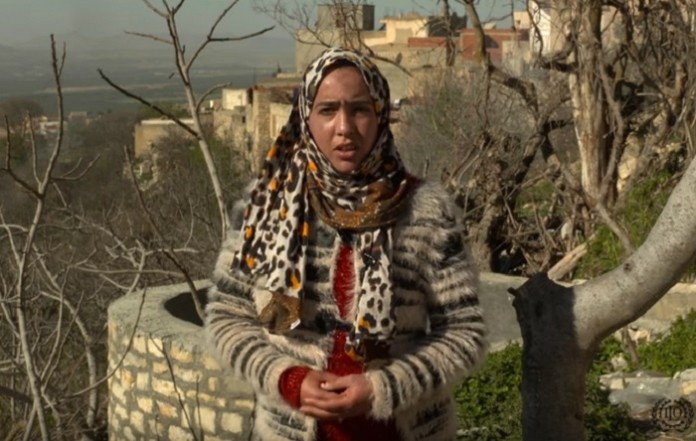In Kesra, Tunisia, an ILO programme to support the development of disadvantaged areas is stimulating local economic activity.
A new irrigation system built using a labour-intensive approach allows water resources to be better managed so that the production of figs and other crops has increased, and new jobs have been created in the region.
Wided Bougrine looks proudly over the fields of fig trees surrounding her native village, of Kesra, in Tunisia. Nestled in the hills outside Tunis, Kesra is known countrywide for the quality of its figs.
Wided, a young hydraulics engineer, was part of a pilot project, run by the International Labour Organization, to install a vast irrigation system. 1,700 metres of canals, 20 holding tanks and a series of micro dams bring water to an area covering 20 hectares. The project has increased crop yields considerably for a 100 local farmers.
Wided Bougrine, hydraulics engineer:
“After graduating, I was unemployed. Then, in August 2013, I contacted the project team.”
She explained she took part in meetings with the farmers about their needs before the project started. Then she did a feasibility study as part of the technical study of the system. And lastly, she monitored the work.
Mohamed Ali Belgacem was also unemployed, after graduating in food sciences. He returned to the village and, thanks to the irrigation system, was able to plant a hundred fig trees on his family’s land.
It will take the new trees about three years to mature. In the meantime, he has also planted vegetables and hopes to employ several farm workers.
Mohamed Ali Belgacem, farmer:
“One of the problems I had was water. Lots of water was lost. Since the system’s installation we’ve lost less water.”
He added that he planted almost 50 varieties of figs that will be sold to make jam.
The ILO programme provided equipment to turn the region’s figs and other fruit into value-added products like jam. It gave technical training and certification to 20 women who formed an association. The products sold successfully and generated revenues that were ploughed back into production.
Tliba Hana, a young mother of two with a diploma in documentation, had never before had a job. Today, she is earning a real wage thanks to her work.
Tliba Hana, member of the association:
“We were trained in jam-making. Then we received training in management and accounting. With what I’ve learned, I can either develop my own business or stay with the association.”
She also said that this has given value to their work and allowed them to assert themselves in society.
Kesra’s jams were a hit at an international fair in Tunis. Every weekend, the women set up a stand and sell their products in the village’s historic centre, which is a popular destination for tourists.
Thanks to the new irrigation system and better-managed water resources, Kesra is producing more and more fruit. No one could be happier than the villagers and Wided, who plans to use what she learned to replicate the system in other agricultural areas in the region.


